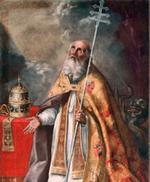Catholic Dictionary
Find accurate definitions of over 5,000 Catholic terms and phrases (including abbreviations). Based on Fr. John Hardon's Modern Catholic Dictionary, © Eternal Life. Used with permission.
Random Term from the Dictionary:
OMNISCIENCE
God's knowledge of all things. Revelation discloses that the wisdom of God is without measure (Psalm 146:5). And the Church teaches that his knowledge is infinite.
The primary object of divine cognition is God himself, whom he knows immediately, that is, without any medium by which he apprehends his nature. He knows himself through himself.
The secondary objects of divine knowledge are everything else, namely the purely possible, the real, and the conditionally future. He knows all that is merely possible by what is called the knowledge of simple intelligence. This means that, in comprehending his infinite imitability and his omnipotence, God knows therein the whole sphere of the possible.
He knows all real things in the past, present, and the future by his knowledge of vision. When God, in his self-consciousness, beholds his infinite operative power, he knows therein all that he, as the main effective cause actually comprehends, i.e., all reality. The difference between past, present, and future does not exist for the divine knowledge, since for God all is simultaneously present.
By the same knowledge of vision, God also foresees the future free acts of the rational creatures with infallible certainty. As taught by the Church, "All things are naked and open to His eyes, even those things that will happen through the free actions of creatures" (Denzinger 3003). The future free actions foreseen by God follow infallibly not because God substitutes his will for the free wills of his creatures but because he does not interfere with the freedom that he foresees creatures will exercise. (Etym. Latin omnis, all + scire, to know.)






